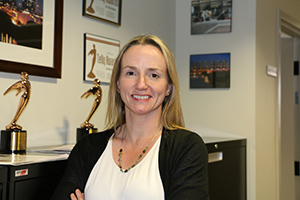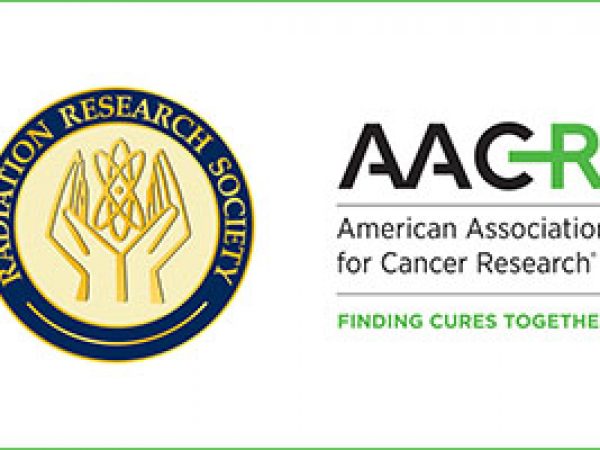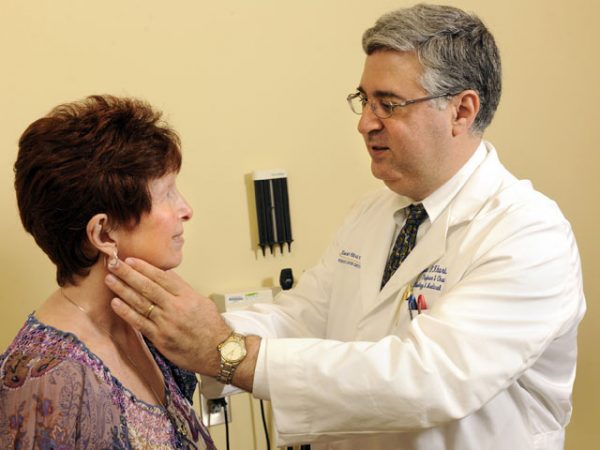AACR Organizes and Oversees Successful Sixth Annual Stand Up To Cancer Scientific Summit
Guest Post by Emer Smyth, PhD
Assistant Director for the Stand Up To Cancer (SU2C) translational research grant programs, AACR
For the past eight years, AACR has been the proud scientific partner to Stand Up To Cancer (SU2C), the groundbreaking initiative that galvanizes the power of Hollywood to fund cutting-edge translational cancer research. Last month, SU2C-affiliated scientists came together in Santa Monica, California, for the sixth annual SU2C Scientific Summit to report on and hear about recent progress made by the multi-institutional translational and clinical research “Dream Teams” that are the core of SU2C’s grant program, as well other members of the SU2C scientific community. As part of its expert scientific oversight and grants administration for SU2C, AACR organized and ran the two and a half day meeting. Attendees, including most of the SU2C Scientific Advisory Committee members, discussed the newest research and latest clinical trials in areas such as immunotherapy, precision medicine, and early detection and prevention in a focused, sometimes intense, and highly interactive atmosphere.
Immunotherapy
Eight of SU2C’s 19 Dream Teams include a dominant or partial focus on immunotherapy. For example, the SU2C-Cancer Research Institute Immunology Dream Team is performing some of the first trials combining Adoptive Cell Therapy (ACT) with immune checkpoint blockade, as well as applying state-of-the-art epitope identification technology to personalize ACT. The SU2C-St. Baldrick’s Pediatric Cancer Dream Team has built a genomics platform to systematically identify cell-surface immunotherapy targets in pediatric cancers and is developing new chimeric antigen receptor T cells and antibody-drug conjugates for pediatric cancer treatment.
The SU2C-Lustgarten Foundation Pancreatic Cancer Convergence Dream Team is working to convert the pancreatic tumor microenvironment from immune privileged to immune permissive to bring immunotherapy advances to this disease. And two other Dream Teams, the Van Andel Research Institute-SU2C Epigenetics Dream Team and the SU2C-American Cancer Society Lung Cancer Dream Team are working to combine immunotherapy with other drugs in treatment of lung, colorectal, and other cancers. Across these and other Dream Teams there is a strong effort to establish all-important biomarkers of patient response to immunotherapies and to understand resistance mechanisms.
Precision Medicine
The second major theme was precision medicine, which is focused not only on the power of next-generation sequencing, but also on bringing together the “omics” – genomics, epigenomics, transcriptomics, proteomics, and metabolomics – to comprehensively understand individual patient’s tumors and treatment responses. Vast arrays of data are being collected from SU2C-associated clinical trials, opening potential new treatment approaches. A prime example is the SU2C-Prostate Cancer Foundation Prostate Cancer Dream Team’s recent discovery that DNA repair mutations, including but not limited to BRCA1/2, are relatively prevalent in castration resistant prostate cancer. This finding aligns prostate cancer with ovarian cancer, in which DNA repair defects are evident in about 50 percent of cases, and opens new avenues for PARP inhibitor treatment of these uniquely male and female cancers. Several Dream Teams are generating large data sets associating clinical outcome with tumor genetic and molecular signatures. These studies use “traditional” biopsy analysis as well as more recent tumor organoid technology, developed in the Netherlands by members of the SU2C-Dutch Cancer Society Tumor Organoids Dream Team.
Hand-in-hand with large scale “omics” efforts, the challenges of “big data” – collection, analysis, harmonization, sharing, and application to clinical practice – are a focal point for the researchers. One Dream Team, the SU2C-Melanoma Research Alliance Melanoma Dream Team, has taken their molecular profiling platform into a clinical trial of precision medicine for advanced melanoma, offering patients treatment options prospectively guided by rapid whole exome sequencing of their tumors with tumor board recommendations within 21 days on average of biopsy.
Early Detection and Prevention
Finally, a relatively new theme in the SU2C research portfolio – cancer early detection and prevention – is covered by two newer Dream Teams. The SU2C-Dutch Cancer Society Early Colorectal Cancer Detection Dream Team is developing highly specific and sensitive molecular stool tests for population-wide colorectal cancer screening that combine testing for genomic, epigenomic, and proteomic markers for colorectal cancer. This effort is based in the Netherlands and takes advantage of that country’s systematic population screening initiatives.
The SU2C-Ovarian Cancer Research Fund-Ovarian Cancer National Alliance-National Ovarian Cancer Coalition Dream Team, in addition to their work understanding and targeting DNA repair pathways in ovarian cancer, will run a clinical trial offering women affordable, high-quality genetic testing of saliva samples, combined with online or telephone genetic counseling, and is working to provide new options for women at high risk.
These highlights are far from a comprehensive description of the summit’s full scientific program. Former recipients of SU2C Innovative Research Grants, which support early career high-risk, high-reward research, presented their work in a poster session, along with young investigators affiliated with the SU2C grant program, bringing the next generation of scientists and clinicians into the mix. This was both a research-in-progress forum and a celebration of outstanding collaborative translational and clinical cancer research.
Emer Smyth, PhD, is assistant director for the Stand Up To Cancer (SU2C) translational research grant programs. Born and raised in Ireland, Smyth received her Bachelor’s Degree in Science and PhD in Pharmacology from the National University of Ireland’s University College Dublin. Before joining the AACR in January 2014, Smyth was a research associate professor at the University of Pennsylvania, where her group investigated a family of inflammatory lipid mediators in breast cancer and vascular disease. She has contributed close to 50 peer-reviewed research publications, scholarly reviews, and chapters, including to the “bible of pharmacology” Goodman and Gillman’s The Pharmacological Basis of Therapeutics, and has given numerous invited lectures in the United States and abroad. At the AACR, Smyth provides scientific administrative support to SU2C and their funding partners, as well as SU2C scientists and Scientific Advisory Committees, across all phases of program launch, evaluation, selection, and post-award review.




